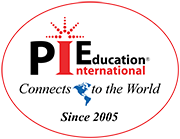Brunel University London Pathway College offers University First Year studies for candidates who do not meet the direct entry criteria or hold high school qualifications that are not recognised. Upon successful completion of the pathway programme, students will progress onto the second year of their Brunel University London progression degree.
This pathway will help students gain the skills and knowledge on the core concepts needed to understand computing and their application in organisations. With the fast-changing pace of technological advances, students will experience learning at an individual as well as group level, ranging from report writing to designing their own business web page.
Computer Science (Artificial Intelligence) BSc
Handling large amounts of data efficiently and quickly is becoming an increasingly important aspect of computing; businesses need to understand trends in data which will allow them to make informed and timely decisions. Artificial intelligence (AI) and the techniques it embraces provide opportunities for this to happen and to make sense of big data.
Qualified graduates with the skills and ability in AI to take advantage of these opportunities are in great demand. Brunel’s Computer Science (Artificial Intelligence) BSc, exposes students to the foundations, theory and practical aspects of computer science and AI.
Students will gain a good understanding of computer science and a grasp of the important elements of a computer system. They will also learn how to build different types of software, from web-based systems to mobile solutions.
By specialising in AI students develop a range of techniques which can be applied in software to solve complex problems. AI is inherent in modern games, financial trading systems and medical systems and enhances the software solutions in each of these areas.
Students will be confident in their knowledge of the nature, diversity and limitations of software artefacts (or programs) that display apparently intelligent behaviour, understand a range of machine learning paradigms, and be able to apply them to the production of innovative and useful artefacts.


